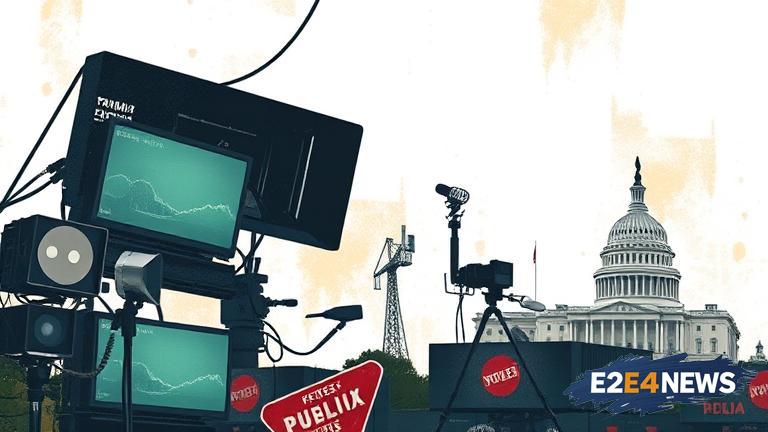The United States public media stations are facing a critical situation as they wait for funding to upgrade their emergency alert systems. The spending cuts implemented by the Trump administration and Congress have left these stations in limbo, unsure of when they will receive the necessary funds to improve their emergency alert systems. The public media stations play a crucial role in disseminating critical information to the public during emergencies, and the lack of funding is causing concern among station managers. The emergency alert systems are used to inform the public of natural disasters, such as hurricanes, tornadoes, and floods, as well as other emergencies like Amber Alerts. The current systems are outdated and in need of upgrading to ensure that the public receives timely and accurate information. The spending cuts have not only affected the public media stations but also the Federal Emergency Management Agency (FEMA), which is responsible for overseeing the emergency alert systems. FEMA has been working to upgrade the systems, but the lack of funding has slowed down the process. The public media stations are relying on outdated systems, which are prone to failures and may not be able to reach all members of the public. The situation is particularly concerning in rural areas, where access to information is already limited. The public media stations are calling on Congress to restore funding for the emergency alert systems, citing the importance of these systems in keeping the public safe. The stations are also exploring alternative funding options, such as partnerships with private companies and non-profit organizations. However, these options are not a substitute for federal funding, and the stations are urging Congress to take action. The issue has sparked a debate about the role of public media in emergency situations and the need for reliable and efficient emergency alert systems. The public media stations are not only a source of information but also a vital part of the emergency response system. They provide critical information to first responders, emergency management officials, and the public, helping to save lives and reduce damage. The lack of funding for the emergency alert systems is not only a concern for the public media stations but also for the public, who rely on these systems for critical information. The situation highlights the need for a reliable and efficient emergency alert system, which can quickly disseminate information to the public during emergencies. The public media stations are working to find solutions, but the lack of funding is a significant obstacle. The stations are urging Congress to prioritize funding for the emergency alert systems, citing the importance of these systems in keeping the public safe. The issue is not only a matter of public safety but also a matter of national security. The emergency alert systems are a critical part of the country’s emergency response infrastructure, and the lack of funding is a vulnerability that needs to be addressed. The public media stations are calling on Congress to take action and restore funding for the emergency alert systems. The situation is a reminder of the importance of public media in emergency situations and the need for reliable and efficient emergency alert systems. The public media stations are committed to providing critical information to the public, but they need the necessary funding to do so. The lack of funding is a challenge that needs to be overcome, and the stations are urging Congress to prioritize funding for the emergency alert systems.
